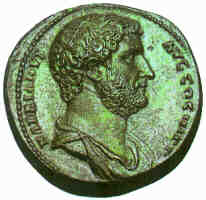Just a little Italian
soltanto per cominciare
only to start
soltanto per cominciare
only to start
io = I
tu = you
lui (egli [letterario]) = he
lei (ella [letterario[) = she
noi = we
voi = you
loro (essi [letterario]) = they
verbo essere = verb to be
io sono = I’m
tu sei = you are
lui, lei, [egli, ella] è = he, she is
noi siamo = we are
voi siete = you are
loro [essi] sono = they are
Articoli determinativi: il, lo, la, i, gli, le = the
Maschile = masculine
Il cane = the dog
I cani = (the) dogs
Lo specchio = the mirror
Gli specchi = (the) mirrors
We use LO and GLI with a word that begins wiht “S”+consonant
We use IL and I regularly with “S”+vowel
Il sogno = the dream
I sogni = (the) dreams
Lo scoiattolo = the squirrel
Gli scoiattoli = (the) squirrels
Femminile = feminine
La casa = the house
La mela = the apple
Le case = (the) houses
Articoli indeterminativi (only singular): un, uno, una = English “a”, “an”
Un cane = a dog
Uno specchio = a mirror
Uno scoiattolo = a squirrel
Un sogno = a dream
Una macchina = a car
We use “uno” (indeterminativo) with a word that begins wiht “S”+consonant
We use “un” regularly with “S”+vowel
When the article “una” (only feminine) precedes a word beginning with a vowel “una” changes in “ un’ “ WITH THE - ‘ -. Nothing similar with masculine “uno”. Be careful “ un‘ ” with the - ‘ - is ONLY feminine “ un’ “ with masculine nouns is always a mistake! Many Italians use to do such a mistake.
Adjectives that in English don’t change at all, in Italian are different for the masculine, the feminine, the singular and the plural.
Bello = singular masculine: beautiful
Bella = singular feminine
Belli = plural masculine
Belle = plural feminine
Diverso, differente = different
Simile = similar
Caro = two different meanings 1) like “dear” (caro amico = dear friend) 2) expensive
And now we are able to write something in Italian… go on!
Il cane è bello = the dog is beautiful
La casa è bella = the house is beautiful
Lo scoiattolo è bello = the squirrel is beatiful
Gli scoiattoli sono belli = squirrels are beautiful
Le case sono belle = houses are beautiful
Just a little dictionary
Pranzo = dinner
Pranzare (verb) = eat dinner
Cena = supper
Cenare (verb) = eat supper
Colazione = breakfast
Albergo = hotel
Camera = room
Ristorante = restaurant
Letto = bed
Tavolo = table
Sedia = chair
Dormire = to sleep
Andare (irregular verb) = to go
Venire (irregular verb) = to come
Dire = to tell
Mangiare = to eat
Avere = to have. The verb “avere” is also used to form verbs on the past, like in English:
Io mangio un panino (adesso) = I eat a sandwich (now).
Io (ieri) ho mangiato un panino = Yesterday I ate (have eaten) a sandwich.
Il presente del verbo avere:
Io ho
Tu hai
Lui, lei, egli ella ha
Noi abbiamo
Voi avete
Loro, essi hanno
(ho hai ha hanno [verb to have] allways with “H”. “anno” without H means “year”, “a” without H means “to”: Vado a Roma = I go to Rome. Writing the verb AVERE (to have) third person plural or singular without H is a common mistake also for Italian people.
Il tempo presente regolare della prima coniugazione (infinito in –are come in mangiare)
Io mangio
Tu mangi
Lui, lei, egli, ella mangia
Noi mangiano
Voi mangiate
Loro, essi mangiano
Tempo passato prossimo regolare della prima coniugazione
Io ho mangiato
Tu hai mangiato
Lui, lei, egli, ella ha mangiato
Noi abbiamo mangiato
Voi avete mangiato
Loro, essi hanno mangiato.
The verb ESSERE uses the same verb essere and not AVERE to form the passato prossimo.
In English you say “I have been over there” in Italian never “io HO stato lì” but always “io SONO stato lì”. A lot of important verbs form the passato prossimo with AVERE and not with ESSERE and it is very difficult for English people to use correctly the two verbs.
Some examples:
Sono stato felice di vederti = I have been happy to see you
Ho mangiato una mela = I have eaten an apple
Sono uscito di mattina = I got out on the morning
Ho capito = I understood
Come congiunzione, like “and” in English, we use “e”.
Come congiunzione avversativa, like “but” in English, we use “ma”
Il termine cosa (plurale cose) corrisponde all’Inglese thig (things)
E adesso possiamo aggiungere ancora diverse cose:
Io mangio un panino e lei mangia una mela.
Voi mangiate i panini ma noi abbiamo mangiato le mele
Un cane e uno scoiattolo mangiano cose diverse
Ieri abbiamo mangiato bene ma il ristorante è caro.
Ieri sono stato a Roma e ho pranzato in un ristorante caro. Oggi (today) ho mangiato panini e mele.
And now you have to get used to all this…


No comments:
Post a Comment